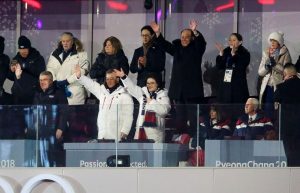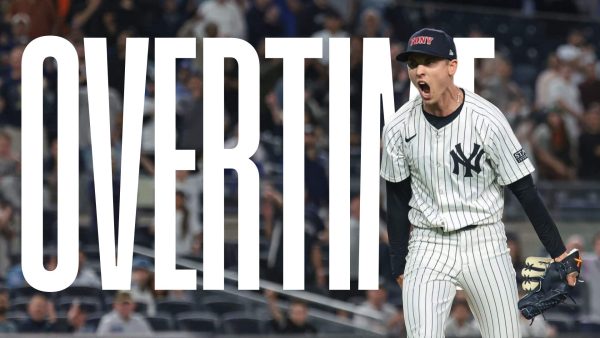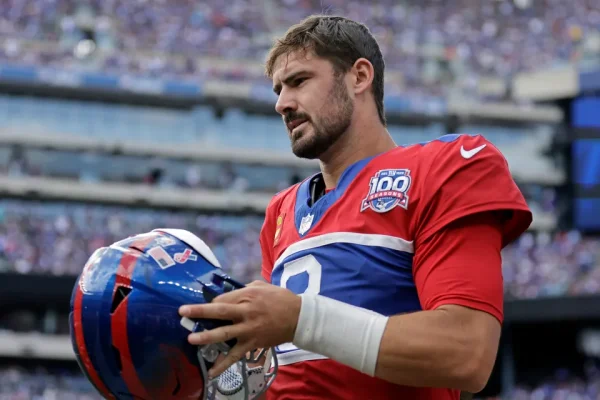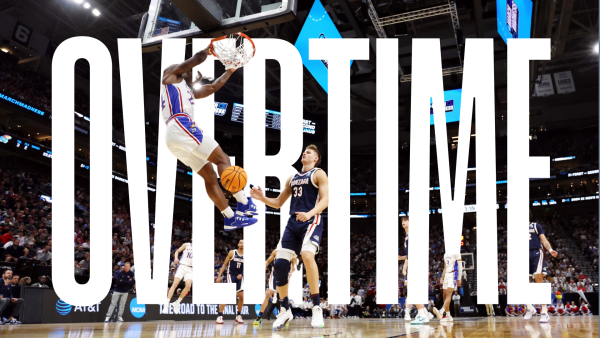Overtime: On Politics and the Olympics
By Jack McLoone

There’s no better example of the fallacy of “separate politics and sports” than the sheer existence of the Olympics (full disclosure: I am an intern at NBC Sports, who is broadcasting the Olympics).
In the past, I have written about how this flawed concept of “sticking to sports” has rightfully died, but I’m wondering if it really ever existed in the first place. How many of the people who got mad at Colin Kaepernick for “politicizing football” also cheered for the US to beat the Soviets in the 1980 Lake Placid Olympics?
There has been some form of politics associated with the Olympics since even the Ancient Games in B.C. Greece. The Greek city-states, constantly at war with one another, would call a truce during the Olympics to allow athletes to travel to Athens unharmed.
When you put 100-plus countries together, you are bound to get politicization. That’s just a simple fact, and, more often than not, people are happy to see it.
Let’s go back to those 1980 Lake Placid games and the “Miracle on Ice.” At the time, the U.S. was in the middle of the Cold War with the Soviet Union, and our team was a true underdog story, made up of a bunch of college kids. The whole country wasn’t pulling because we loved the United States; we wanted to symbolically beat communism and the Soviets.
At this time, the Summer and Winter Olympics were still on the same schedule, instead of the current off-setting cycle where one occurs every two years. The United States and 65 other countries skipped the Summer Olympics in Moscow to protest the Soviet invasion of Afghanistan. Not only did politics infiltrate sport, it went as far as to keep sport from happening (for some).
Or what about when Jessie Owens won four gold medals at “Hitler’s Olympics,” the 1936 Berlin Summer Olympics? Or Tommie Smith and John Carlos raising their fists at the 1968 Mexico City Olympics? The Olympics are quite possibly the biggest stage in the world; of course they are politicized, and this isn’t something I have a problem with.
The current Winter Olympics in Pyeongchang are some of the most politically fraught in a long time. However, the timing could not be more perfect, as it seems as though the games could renew talks between North and South Korea.
Standing in the way of a lot of potential progress is, of course, the United States, South Korean ally and current worldwide antagonist.
In one show of impressive unity, North and South Korea were introduced at the Olympics as just “Korea,” walking under a unified flag for the first time since 2006. They also are competing as one women’s hockey team (who got blown out in their debut, but the symbolism was still there).
When Korea was announced at the Opening Ceremonies, they were greeted with a standing ovation… except by Vice President Mike Pence and his wife. You know, the same Pence who allegedly was so disgusted at players kneeling during the National Anthem that he left a Colts game. There is a certain irony in Pence participating in the exact form of protest that he decried just months earlier. I wonder if anyone turned the ceremony off.
The idea that sports should be separate from politics is blind. Those who want it to be separate are not uncomfortable with the marriage of sports and politics just disagree with the politics. In other words, they can shove it.
Sports is a great unifier in this world; that is what the Olympics represent. The nature of most sports is the team, and in the Olympics, even the individual sports absorb a sort of team aspect. And if you trace back the thread of athlete protest, almost all of them come in the form of a fight for unity. From Olympic athletes like Smith and Carlos to Kaepernick, these are not self-serving protests (though that’s what some would have you believe.) They instead are amplifying the same message that sports ask us to adopt: teamwork and equality.
The last sentence was incredibly corny and probably three-quarters cliché but I stand by it. There is no separating the person from the athlete, nor should there be. If we’re going to pretend that sports exist as some sort of monolith of entertainment, without any sort of outside influence, why not play it with robots?
It’s a paradox, really. There is a long record of the political influence in sports being unity-driven, yet a certain sect of the population sees that message as offensive and thinks it drives a wedge between people.
To those people, I again say: shove it.
Look, are the Olympics a perfect arena for political messages? No. For example, too much is being made of Kim Yo-jong, Kim Jong-un’s sister, who somewhat outshone Pence during the opening ceremonies. However, she’s just as complicit in the atrocities going on in North Korea as her brother.
But there is no perfect area for political messages. Have you seen who we elected as president? The “proper channels,” if they ever existed, do not anymore.
If we’re going to ask our athletes to be role models, if we’re going to label successful Olympians as heroes, then don’t step in their way when they look to achieve that goal in a more meaningful way than winning it on the ice or the field.
If the Olympics are truly about unity – and yeah, maybe that’s idealistic but let me have this – then yes, unity politics will be involved. Let our athletes be people, our role models be role models and tell our Pences to, repeat after me: shove it.











































































































































































































